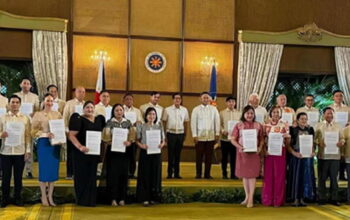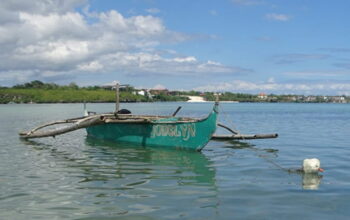
CORTES, Bohol (PIA)—Still smarting from flurry of suspension of government officials who may or may not have anything to do with illegal encroachment in the country’s protected areas, the Regional Development Council in Region 7 (RDC-7) led by Bohol Governor Erico Aristotle Aumentado enjoins Local Government Units to strictly implement reforms in the issuance of local government permits and clearances for structures and facilities to be built within protected areas.
With 24 protected areas in the region, 11 of which are legislated and 13 more in the initial list, relying on the Department of Environment and Natural Resources (DENR) administering the protected sites has proven to be a physically demanding task that stakeholder engagement and cooperation is crucial in ensuring sustainable use of resources and protection of ecological processes in these areas, according to the RDC.
“To ensure that these areas declared in the National Integrated Protected Areas System Act and those legislated under the eNIPAS are conserved and protected. Local government units play a critical role, which the DENR 7 recognizes.” Aumentado, who was suspended for two months despite non participation in a Chocolate Hills Protected Landscape building breach, pointed out.
And while the NIPAS Act and the eNIPAS Law of 2018 aims to protect and maintain the country’s natural biological and physical diversities, categorize protected areas, it also aims to implement regulations to ensure sustainable use of resources and protection of ecological processes.
In the eNIPAS implementing rules and regulations, protected areas are divided into Strict Protection Zones, which are closed to human activity due to very important biodiversity value, high susceptibility to damage and are thus restricted to humans, and Multiple Use Zones where settlement, traditional and sustainable land use like agriculture, agroforestry, extraction activities and livelihood activities may be allowed as detailed in the Protected Area Management Plan.
On these areas, the law requires the issuance of Special Use Agreement in Protected Areas (SAPA) and the Environmental Compliance Certificate (ECC)when using areas classified as forestlands, and PAMB clearance and ECC for alienable and disposable areas, all within the Multiple Use Zones.
SAPA is a binding instrument between the DENR and the project proponent resting to the use and development of land, resources or facilities within the PS.
PAMB clearance on the other hand certifies that the project is in line with the PAMP.
On the other hand, ECC is a certification that the undertaking will not cause significant negative environmental impact, and that the proponent complied with all the requirements of the mandated Philippine Environmental Impact Statement System, and commits to implement according to approved environment management plan.
It was found out however, that some LGUs do not strictly require the SAPA or PAMB clearance, and the ECC as among the requirements in the issuance of business permits and clearances for structures and facilities to be built and established within the MUZ of the protected areas.
To this, the RDC Economic Development Committee, in its meeting, passed Resolution No. 27, s 2024, recommending to the RDC Full Council to request for support from LGUS in the inclusion of the SAPA or PAMB Clearance and the ECC among the requirements in the issuance of business permits, building permits and clearances for structures and facilities to be established within the Multiple Use Zones of these areas.
The EDC also requests the Department of Interior and Local Government to reinforce the request and enjoin LGUS to require the same. (RAHC/PIA-7/Bohol)



